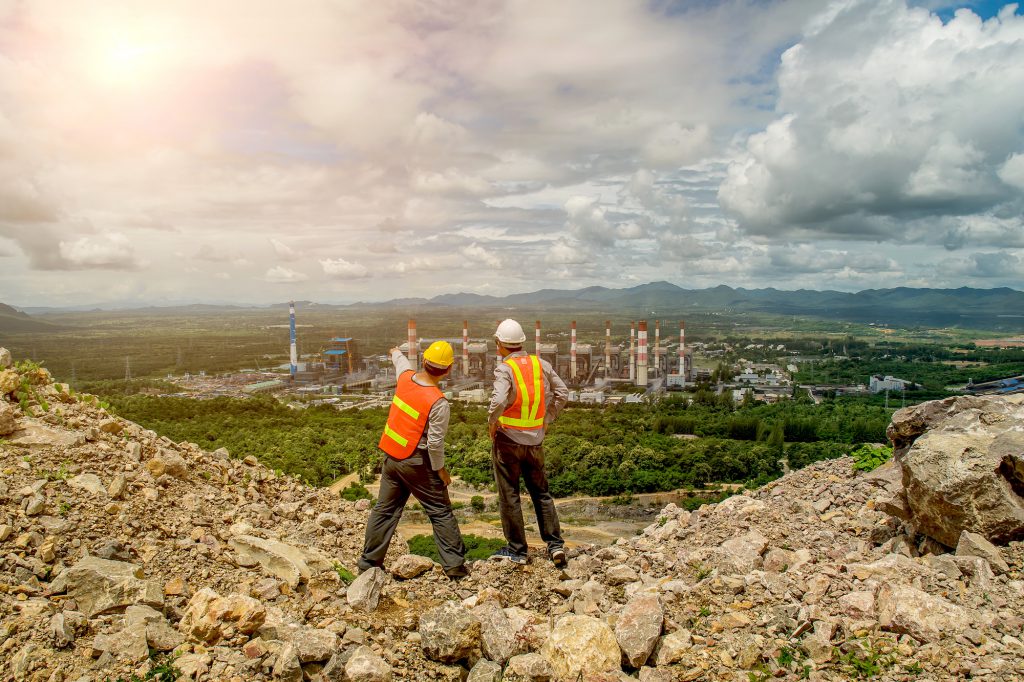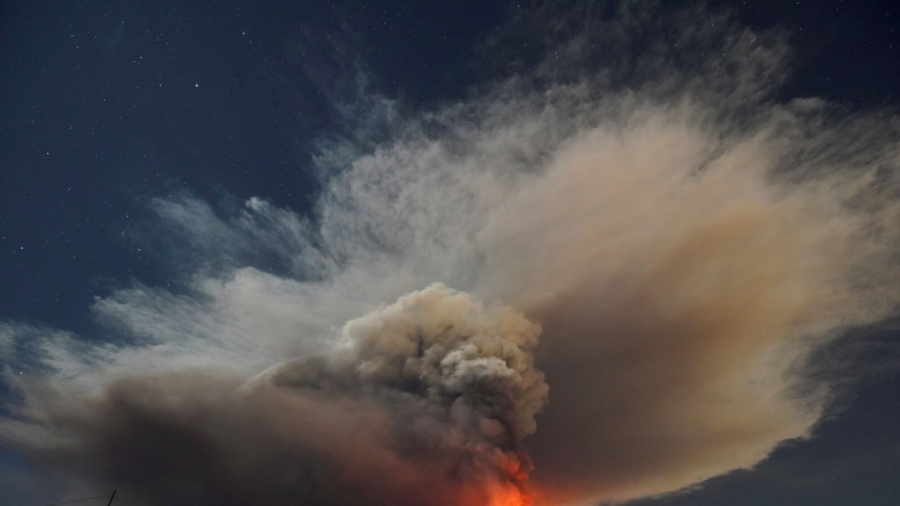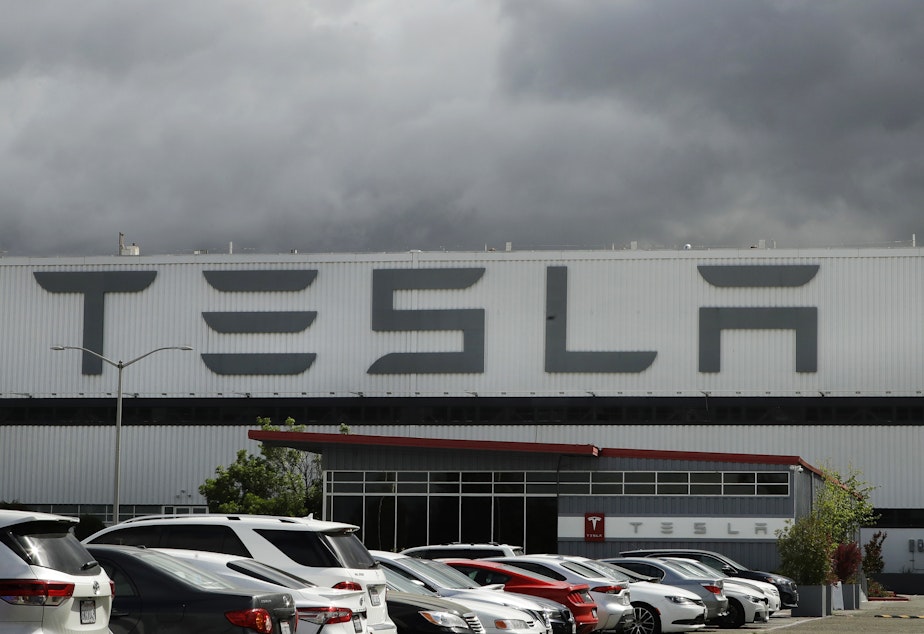
California is suing Tesla after a three year investigation where the state found racial discrimination against Black workers at its plant in Fremont, Calif.
CREDIT: AP
BY Deepa Shivaram
FEB 11, 2022
The state of California' Department of Fair Employment and Housing is suing Elon Musk's company Tesla over racism and harassment toward Black employees at their plant in Fremont, Calif., according to a lawsuit filed by the state this week. The company has called the lawsuit "unfair."
The lawsuit follows three years of investigation into Tesla and alleges that Black and African American employees at the company's Fremont plant are "segregated to the lowest levels."
The lawsuit describes multiple instances of racist language and drawings toward Black employees, penalizing Black employees more harshly than white employees, and denying Black employees career advancement opportunities and equal pay for work similar to other employees.
"These numerous complaints by Black and/or African American workers about racial harassment, racial discrimination, and retaliation lodged over a span of almost a decade have been futile," the lawsuit says. "Tesla has continued to deflect and evade responsibility. While it claims to not tolerate racial harassment or discrimination at its factories, Tesla's investigations of complaints are not compliant with law."
Prosecutors describe years of harassment and discrimination
The lawsuit says Tesla "turned, and continue to turn, a blind eye" to the years of complaints from Black employees at the factory. For example, Tesla allegedly is slow to clean up racist graffiti, including ones with swastikas, KKK, the n-word and other hate symbols, that were drawn in common areas and on the factory machines.
The lawsuit says one Black worker saw "hang N[ ]" written next to an image of a noose in the bathroom of the breakroom. The same worker also saw "all monkeys work outside" and "fuck N[ ]" written on the walls of the breakroom. The writing and drawings allegedly remained for months.
Discrimination against Black employees was constant, the lawsuit says, and has been going on as early as 2012, the year after Tesla started production there. Black workers at Tesla complained that managers and supervisors "constantly" used the n-word and other racial slurs towards them and other Black workers.
Some workers at Tesla with tattoos of the Confederate flag would make their tattoos visible to intimidate Black workers, according to the lawsuit. Workers at Tesla also allegedly referred to the factory as the "slaveship" or "the plantation," in addition to other slurs. "One Black worker heard these racial slurs as often as 50-100 times a day," the lawsuit states.
Black workers had to clean the factory floor on their hands and knees while others apparently did not, the lawsuit says, and Black employees were assigned to more physically demanding work.
If Black employees complained about the harassment and discrimination, they were retaliated against, prosecutors say. And Tesla refused to take "all reasonable steps necessary" to prevent the ongoing discrimination, harassment and retaliation.
Tesla says the lawsuit is "counterproductive"
Tesla did not immediately respond to a request for comment from NPR.
The department suing Tesla said they attempted to resolve the dispute without litigation at first, which would involve an internal dispute resolution provided by the department, free of charge. When offered in January, Tesla refused to attend. In February, the lawsuit says the parties were "unable to resolve the administrative complaints at the mediation."
On the day the lawsuit was filed, Tesla issued a public blog post, titled "The DFEH's Misguided Lawsuit," where it called the lawsuit "unfair and counterproductive."
"Tesla strongly opposes all forms of discrimination and harassment and has a dedicated Employee Relations team that responds to and investigates all complaints," Tesla writes. "Tesla has always disciplined and terminated employees who engage in misconduct, including those who use racial slurs or harass others in different ways."
"A narrative spun by the DFEH and a handful of plaintiff firms to generate publicity is not factual proof," the blog post says.
Tesla says that they will ask the court to pause the case. [Copyright 2022 NPR]
Tesla has denied allegations of racial discrimination and harassment, calling the California DFEH's lawsuit "misguided."
Feb 11, 2022
A lawsuit by the California Department of Fair Employment and Housing says it has uncovered a persistent pattern of ongoing racist behavior at Tesla’s Fremont factory.
As previously reported, the agency is suing the automobile manufacturer for alleged racial discrimination and harassment.
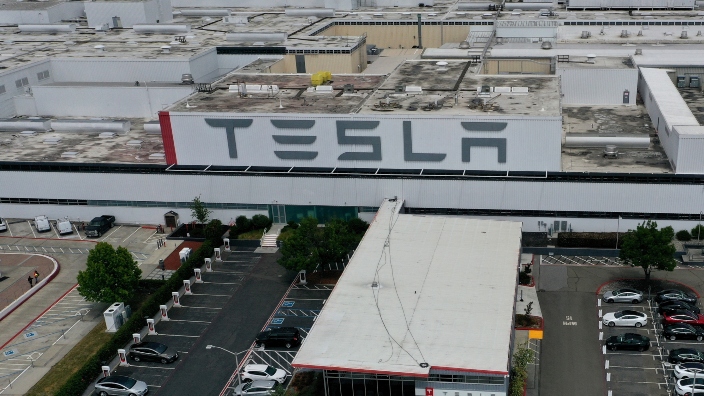
“After receiving hundreds of complaints from workers, DFEH found evidence that Tesla’s Fremont factory is a racially segregated workplace where Black workers are subjected to racial slurs and discriminated against in job assignments, discipline, pay and promotion, creating a hostile work environment,” Kevin Kish, the agency’s director, said in a statement, according to The Wall Street Journal.
The East Bay Times has reviewed the lawsuit and notes that “As early as 2012, Black and/or African American Tesla workers have complained that Tesla production leads, supervisors and managers constantly use the n-word and other racial slurs to refer to Black workers.”

“They have complained that swastikas, ‘KKK,’ the n-word, and other racist writing are etched onto walls of restrooms, restroom stalls, lunch tables, and even factory machinery,” says its report.
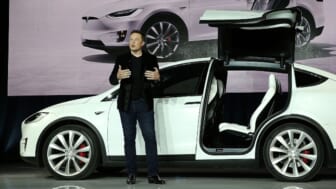
Also Read:
California sues Tesla for alleged racial discrimination, harassment
The Jerusalem Post alleges that a noose drawn in a bathroom at the factory remained up for months.
The DFEH suit also alleges that “Black and/or African American workers are assigned to more physically demanding posts and the lowest-level contract roles, paid less and more often terminated from employment than other workers. They have also complained that Black and/or African American workers are often denied advancement opportunities, and more often and more severely disciplined than non-Black workers.”


Also Read:
Arizona Republican calls Elon Musk America’s ‘richest African American’
“A common narrative was Black and/or African American workers being taunted by racial slurs and then baited into verbal and physical confrontations, where they, in turn, were the ones disciplined for being purportedly ‘aggressive’ or ‘threatening,’” the suit claimed. “These written warnings in their personnel files had consequences for later promotional and professional opportunities.”
Tesla has denied the allegations, its officials writing in a blog post that the DFEH’s lawsuit is “misguided.”
The company says it “strongly opposes all forms of discrimination and harassment and has a dedicated Employee Relations team that responds to and investigates all complaints,” adding that management “has always disciplined and terminated employees who engage in misconduct, including those who use racial slurs or harass others in different ways.”
Regional NAACP President Rick Callender applauded the state’s efforts.
“The Department of Fair Employment and Housing should be applauded,” he said in a statement, “for seeking justice against Tesla for their racist behavior.”
On Twitter, Callender wrote, ”Racism is rampant at Tesla. @cahinaacp stands behind DFEH & Tesla employees. We demand a racist free workplace. Business & Gov. orgs should know racist behavior is not tolerated in CA. Who thinks they should own a @Tesla now??”
